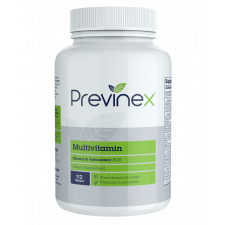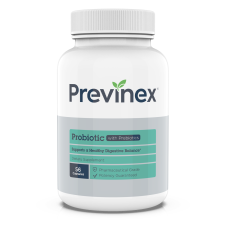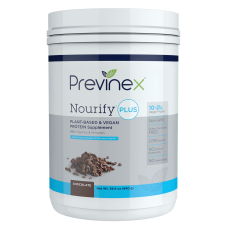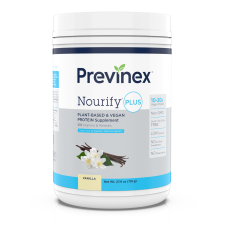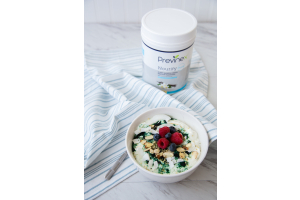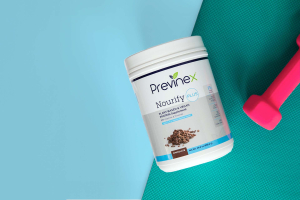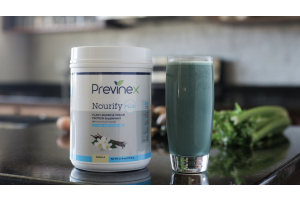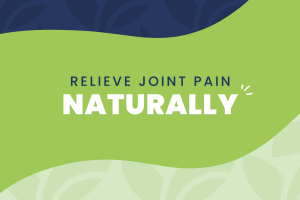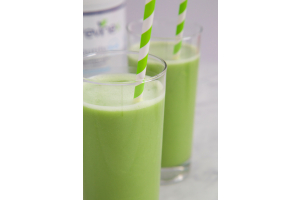
What is Aging?
It’s no secret that (obviously) we all age. We can’t be—or look—young forever (unfortunate, we know).
The simple definition of aging is just “the process of growing old.” The more complex definition of aging is that it’s the “time-related deterioration of the physiological functions necessary for survival and fertility.” Aging is a natural part of life, and it’s something every species experiences.
However, as humans, we are given the unique opportunity to care for our bodies and systems in a way that can slow the aging process, keeping us healthy for a long, active life. But it’s more than just eating well and exercising—here are four ways to naturally slow the aging process, keeping us sharp and healthy as we grow:
1. Get Enough Sleep
When we’re babies, all we do is eat, sleep, and poop. (What a life, right?) But for some reason as we get older, we tend to de-prioritize sleep. In reality, adults should be getting a good 7-9 hours of sleep every night. In a recent study, it showed that adults in their 50s and 60s who got 6 hours of sleep or less showed greater risk of developing dementia later in life. The link between lack of sleep and dementia is associated with the buildup of beta-amyloid—a protein involved in Alzheimer’s disease. Sleep helps keep our brains sharp!
Sleep is also critical for repairing cellular damage, as it promotes muscle repair and growth. It helps our brains process new information and strengthens our immune system. Basically, getting a good night’s sleep should be at the top of our health goals and priority lists.
2. Eat a Health, Balanced Diet
There’s a whole host of different diets out there—KETO, Whole30, Paleo, Mediterranean, DASH—the list goes on. Diet culture is alive and well, folks. And while different eating styles may benefit different people, the most important thing is to have a balanced diet of fresh fruits and vegetables, whole grains, healthy fats, and lean proteins.
What we put into our body directly impacts our daily lives. It can help us maintain normal body function and healthy weight, helps prevent disease, boosts our mood and energy, provides stress relief, and more. Food is medicine (and tastes way better), so it’s important to treat it with the level of impact it can have on our bodies.
3. Exercise
Moving our bodies doesn’t have to look like intense strength training for hours on end every day, or training to run some extreme distance. It can be as simple as going for a walk, taking a yoga class, or going for a swim. In one study of adults 40 years old and older, those who took 8,000 steps per day—as compared to those who took 4,000 steps—had a 51% lower risk of death.
Consistent exercise can also help maintain muscle mass. Strength training is another important part of maintaining muscle mass, which directly impacts our ability to move independently. Keeping muscle mass lean and healthy can also decrease the risk of falling, disability, and overall frailty.
4. Take Care of Your Mental Health
Mental health IS health, and caring for our minds is just as important as caring for our bodies…especially since our brains control our bodies!
One way to care for our mental health is by actively participating in community. Being with people is always important, but it becomes increasingly important the older we get. In fact, feeling or being lonely can actually impact our memory, and one study found that socially isolated adults actually experienced more lung conditions and depressive symptoms than those who were actively engaged in community. We were created for connection, so being surrounded by other people plays a big part in our mental health.
It’s also important to maintain healthy levels of stress. While our culture tends to thrive on the hustle, constant stress can change our brains, affect our memories, and increase risk of developing cognitive diseases. There is also a huge connection between the gut and the brain, so the things we’ve already talked about—sleep, eating well, and exercise—directly impact our mental health.
To put it simply, our bodies and minds need REST.
Reminder
While aging is a natural part of life that we’ll all experience, these are just a few of the ways to maintain a healthy lifestyle to ensure you live a long, healthy life. So remember to get enough sleep—at least 7-9 hours every night, eat a healthy, balanced diet with lots of fruits, veggies, healthy fats, whole grains, and lean proteins, get your body moving, and take care of your mental health by being in community with others and doing things you enjoy.

